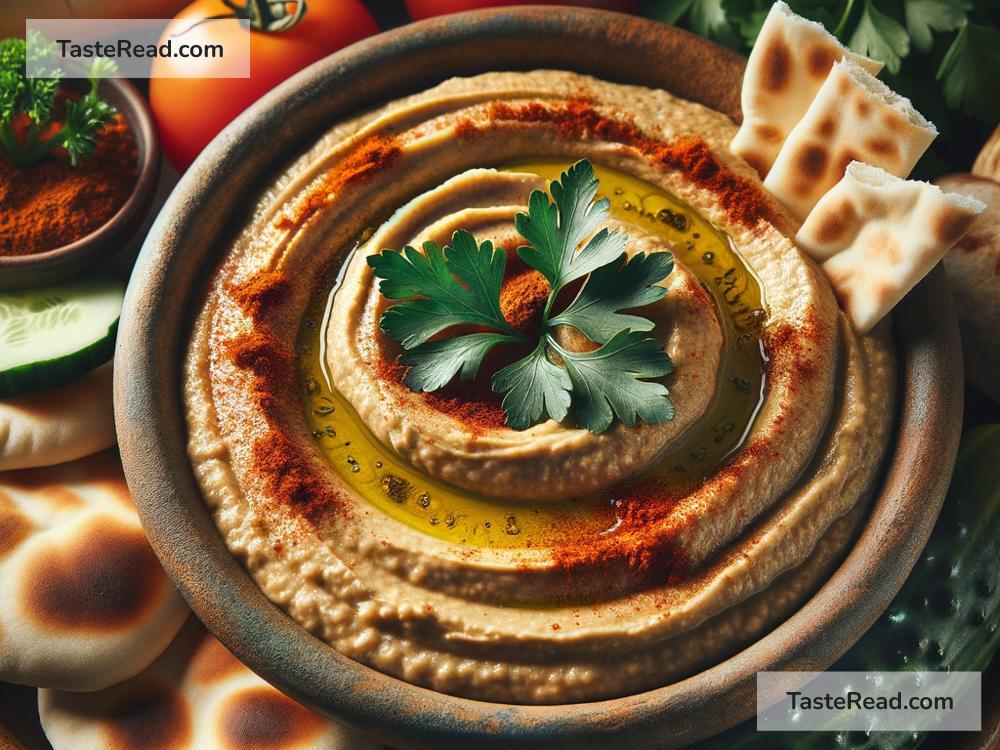The Cultural Significance of the Lebanese Baba Ganoush
Baba Ganoush, a creamy, smoky eggplant dip, is not just a dish—it’s a symbol of Lebanese culture, creativity, and hospitality. This well-loved recipe has traveled far and wide, becoming popular in homes and restaurants worldwide. Its rich flavors and collaborative origins make it a shining example of the beauty of Lebanese cuisine and its deep ties to tradition.
What Is Baba Ganoush?
Baba Ganoush is made from roasted or grilled eggplants blended with tahini (ground sesame paste), lemon juice, garlic, and olive oil. Some recipes also include spices, parsley, or even a hint of pomegranate seeds for added flavor and texture. The smoky taste from charred eggplant and the creamy smoothness from tahini together create something truly special. It’s often served as part of a mezze platter—a selection of small dishes meant for sharing—which lies at the heart of Middle Eastern dining culture.
Though Baba Ganoush may seem simple, its ingredients tell a deeper story. Eggplants are among the most popular vegetables used in Lebanese cooking because they are versatile and grow well in the region’s climate. Additionally, tahini and olive oil are staples in Lebanese kitchens, representing the country’s agricultural wealth and longstanding traditions. Together, these ingredients create a dish that feels uniquely Lebanese while being universal in appeal.
A Dish Rooted in Tradition
The process of making Baba Ganoush itself reflects Lebanese customs. In traditional households, preparing food is often a communal activity. Families gather in kitchens or outdoor spaces to grill eggplants over open flames, carefully charring them to bring out their smoky essence. This process is not hurried; it’s an opportunity for loved ones to connect and share stories while preparing the food.
Mezze, the context in which Baba Ganoush is usually served, is more than just dining. It’s a cultural ritual—a celebration of community and togetherness. Mezze platters are spread across a table, inviting everyone to partake, taste, and enjoy. No one eats alone; food is shared, and conversations often flow richly over dips like Baba Ganoush, hummus, and other flavorful creations. This tradition shows the Lebanese emphasis on hospitality—welcoming guests and treating them to food made with care and love.
Through this practice, Baba Ganoush plays a role far beyond being nourishing or delicious. It’s about building relationships, celebrating life’s moments, and connecting with others.
The Symbolism of Eggplant and Preservation of Culinary Heritage
The eggplant is sometimes referred to as the “king of vegetables” in the Arab world, and Baba Ganoush is one of its crowning achievements. This humble ingredient symbolizes resilience and ingenuity in Lebanese cooking. Eggplants are affordable, nutritious, and versatile, which makes them a key ingredient in recipes across the Middle East. Baba Ganoush exemplifies the Lebanese love of elevating simple foods through thoughtful preparation and seasoning.
Lebanese cuisine stands as a vital link to the country’s cultural identity. It reflects its history, geography, and the blending of influences from different civilizations, including Phoenicians, Romans, Ottomans, and more. In recent years, as Lebanese people settle in other parts of the world, food traditions have helped preserve their culture and stories. Baba Ganoush, as both a dish and a symbol, continues to remind Lebanese people of their roots, even when far from home.
For Lebanese diasporas around the globe, serving Baba Ganoush at gatherings has become a way to stay connected to their heritage. They often introduce friends and neighbors in their new communities to the flavors that define Lebanese cooking. In this sense, Baba Ganoush extends beyond borders, becoming a cultural ambassador.
A Dish That Promotes Sustainability
Modern chefs often appreciate Baba Ganoush for its alignment with sustainable eating practices. Eggplants are widely available, easy to grow, and require fewer resources compared to meats or other foods. By celebrating dishes like Baba Ganoush, the culinary world demonstrates how eating plant-based foods can be both healthy and delicious.
For centuries, Lebanese cuisine has focused on using fresh, seasonal ingredients, avoiding waste, and making use of every part of the harvest. Baba Ganoush reflects this concept beautifully. A well-roasted eggplant can transform into something extraordinary, proving that nothing needs to be overly complex to be meaningful.
Conclusion: More Than Just a Dip
To many people, Baba Ganoush is a delightful dish to scoop up with bread or vegetables, but to the Lebanese, it’s much more. It’s a reflection of traditions, family values, and thoughtful cooking. It represents the heart and soul of mezze culture—a gathering that transcends food.
In a world where speed and convenience often take priority, Baba Ganoush offers a reminder to slow down, enjoy meaningful moments, and connect with others. Whether you’re sharing it at home, introducing it to friends, or enjoying it at a Lebanese restaurant thousands of miles away from its birthplace, Baba Ganoush provides a taste of Lebanese hospitality and love.
So the next time you savor its smoky goodness, remember: this simple dish carries centuries of stories, flavors, and connections. It’s not just something to eat—it’s a piece of Lebanon on your plate.


